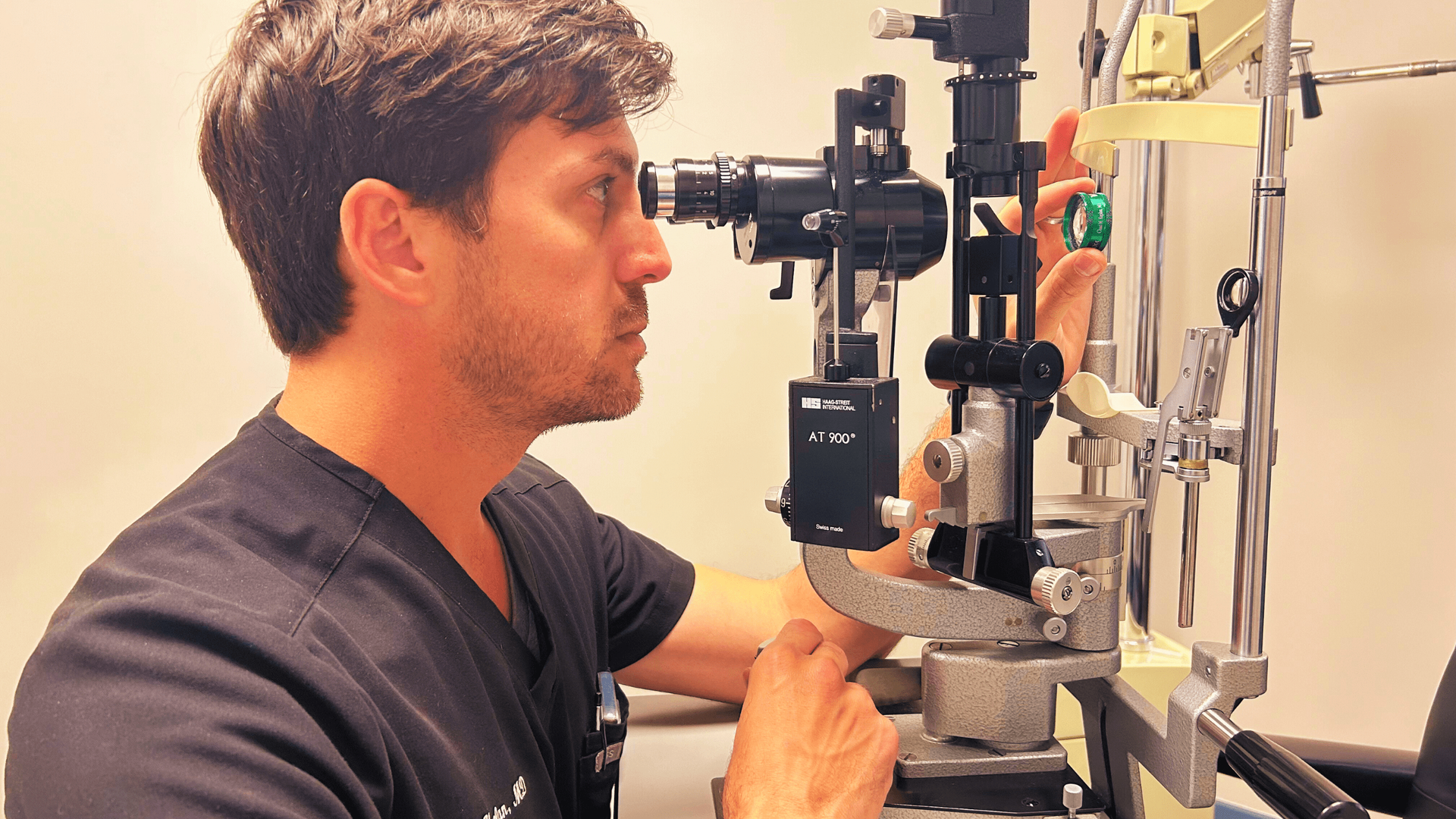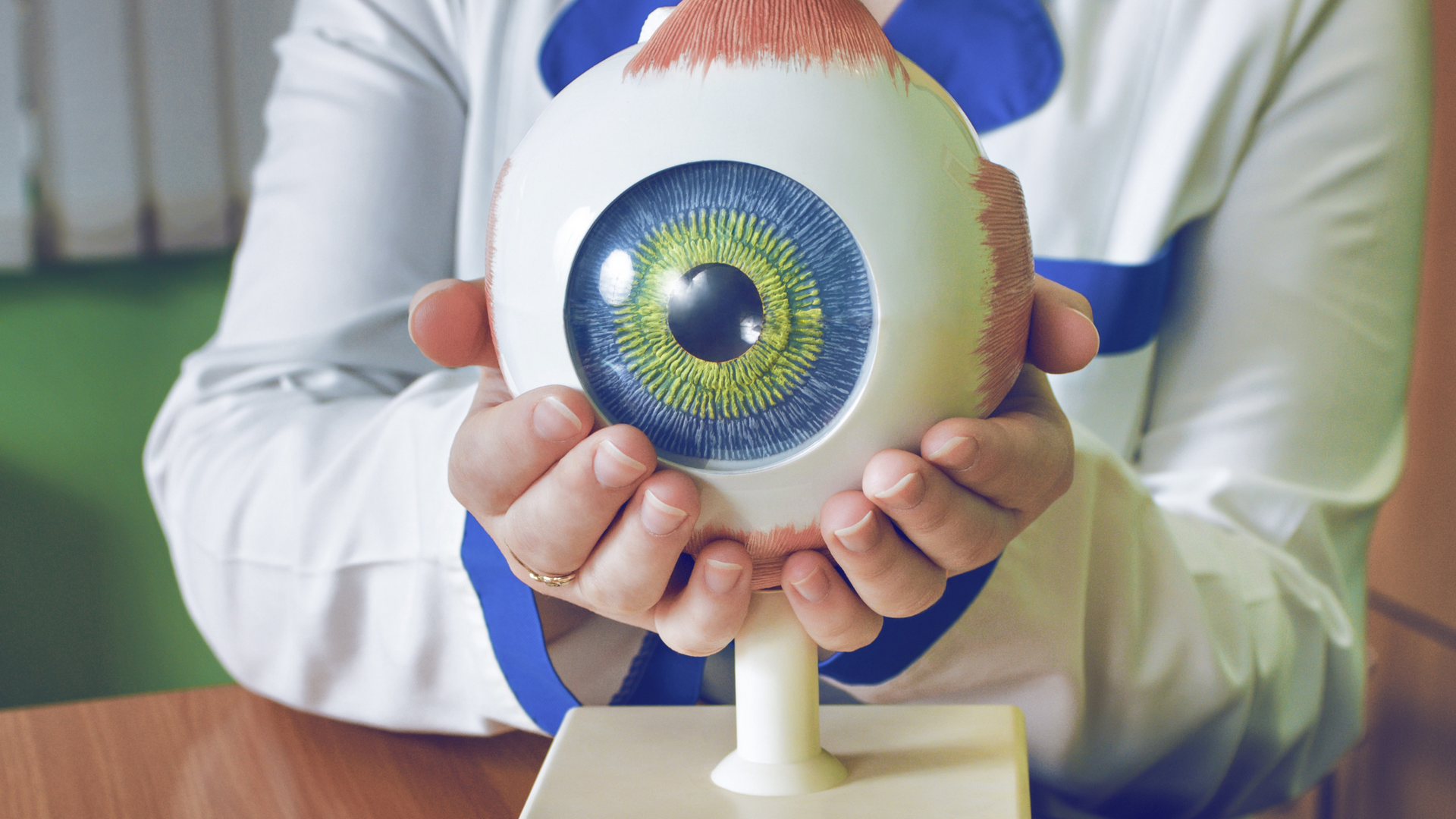Follow Us
10 Street Name, City Name
Country, Zip Code
786-829-6395
contact@ophthalmologistmiami.com
Glaucoma Specialist Miami
Finding the Best Glaucoma Specialist in Miami to Protect Your Vision
Glaucoma is one of the leading causes of blindness, affecting over 3 million Americans. As a progressive eye disease, glaucoma causes damage to the optic nerve due to increased pressure in the eye called intraocular pressure (IOP). The key to protecting vision from glaucoma is early detection through comprehensive eye exams and specialized treatment from experienced ophthalmologists.
This guide provides a complete guide on:
- Understanding glaucoma and associated risk factors
- Diagnostic tests like gonioscopy and OCT scans
- Treatment options like eye drops, laser surgery, and MIGS procedures
- Finding top glaucoma specialists in Miami
- Managing glaucoma through regular eye exams and follow-up care
Follow these tips to take control of your glaucoma and connect with the best doctors in Miami for personalized treatment. Schedule an appointment today with Dr. Chad Kaplan to evaluate your symptoms and start protecting your eyesight.
Glaucoma 101
Glaucoma is a sneaky eye condition that can slowly steal your vision if it's not caught early. Not fun! But don't worry - with proper treatment and care from a skilled eye doctor, most people with glaucoma won't go blind.
So what causes glaucoma in the first place? It happens when pressure builds up inside your eye, called intraocular pressure or IOP. This extra pressure damages the optic nerve, which is what sends visual signals from your eye to your brain. Not good!
There are a few different types of glaucoma:
- Open-angle glaucoma: The most common type. It happens gradually over time.
- Angle-closure glaucoma: Less common. Happens suddenly when the iris blocks the eye's drainage angle.
- Normal-tension glaucoma: Yes, you can get glaucoma even with normal eye pressure!
What are the symptoms?
- Blurry vision, usually starts with peripheral (side) vision loss
- Seeing rainbow halos around lights
- Eye pain or nausea
- Headaches
Unfortunately, glaucoma has no early warning signs. By the time you notice vision changes, there's often been serious damage to the optic nerve. That's why regular eye exams with imaging tests are so important!
Who's most at risk for glaucoma?
- People over 60 years old
- Family history of glaucoma
- African Americans over 40
- People with diabetes or high blood pressure
- Nearsighted or farsighted people
The good news? Glaucoma can be managed if caught early! With medications, surgery, and doctor follow-ups, most people can preserve their vision. But it takes proactive care. Don't mess around with your eye health!
Protect your sight by getting a dilated eye exam every 1-2 years if you're at higher risk. And see an ophthalmologist right away if you notice any vision changes, eye pain, nausea, or headaches. Catching glaucoma early with a comprehensive eye exam can make all the difference.
Diagnosing Glaucoma
So how do eye doctors check for tricky glaucoma damage? With a thorough eye exam using advanced technology!
When you visit the ophthalmologist, they'll start with standard vision and eye health tests. Then come the glaucoma-specific screening exams:
- Tonometry - Measures eye pressure (IOP). High IOP is a red flag for glaucoma.
- Visual field test - Checks your peripheral vision. Glaucoma damages side vision first.
- Gonioscopy - Looks at the eye's drainage angle. Helps determine glaucoma type.
- OCT scan - Advanced imaging of the retinal layers and optic nerve. Can detect early glaucoma.
- Optic disc photography - Documents the optic nerve for changes over time.
Pretty fancy stuff! These imaging and eye mapping tests allow eye doctors to thoroughly evaluate your optic nerve and check for any signs of glaucoma damage.
Here are some other glaucoma diagnostic tools:
- Pachymetry - Measures corneal thickness, which can affect IOP readings.
- HRT - Scans the optic nerve and retinal nerve fiber layer.
- SLP - Scanning laser polarimetry maps the retinal nerve fiber layer.
The key is early detection! Glaucoma screenings during routine eye exams can diagnose glaucoma years before you'd notice vision problems on your own.
If you're at higher risk for glaucoma:
- Get a complete exam every 1-2 years
- Visit an ophthalmologist to access advanced diagnostic technology
- Don't delay if you have glaucoma symptoms like eye pain or vision changes
Catching glaucoma early with comprehensive eye exams gives you the best shot at protecting your eyesight with proper treatment. Don't play games with your vision - get checked!
Treating Glaucoma
So you've been diagnosed with glaucoma. What's next? With proper treatment, most people can manage glaucoma and prevent vision loss. Let's walk through your options!
The main treatment goals are to lower your eye pressure (IOP) and protect the optic nerve from further damage. Here's what an ophthalmologist may recommend:
Medications
- Eye drops - Help reduce fluid production or increase drainage. Common types are beta blockers, carbonic anhydrase inhibitors, alpha agonists, and prostaglandin analogs. Most people need drops lifelong.
- Oral medications - Can also lower IOP. Usually acetazolamide pills.
Laser Therapy
Uses targeted laser light to open blocked drainage channels. An office-based procedure.
Glaucoma Surgery
If medications and lasers can't control IOP, your doctor may suggest:
- Filtering surgery - Creates new drainage channels for eye fluid outflow.
- Drainage implants - Tiny tubes/shunts to improve natural drainage.
- MIGS - Minimally invasive glaucoma surgeries, new smaller implants.
A Combination Approach
For many patients, a mix of treatments keeps glaucoma in check best. Like eye drops plus laser therapy, or medications with MicroPulse laser. Your ophthalmologist will personalize your care.
Key Tips
- See your eye doctor regularly to monitor IOP and optic nerve changes. Follow their treatment plan.
- Use glaucoma medications as prescribed. Don't skip eye drops - consistency is crucial!
- Report any side effects like blurred vision or red eyes. Your doctor may adjust medications.
- Don't panic about surgery. Glaucoma procedures are very common with excellent results.
With discipline and close monitoring, glaucoma can be well-controlled. Partner with an experienced ophthalmologist to protect your sight!
Finding the Right Glaucoma Specialist in Miami
Living with glaucoma? You need an all-star ophthalmologist team on your side! Here's how to find top-notch glaucoma care in Miami:
Seek Out Subspecialists
Glaucoma has nuances. You want doctors fully focused on managing this disease day in and day out. Look for glaucoma fellowship trained specialists.
Ask Around
Talk to your primary care doctor or eyeglass store for referrals. Chat with friends who have glaucoma or diabetes (higher risk). Online reviews can help too.
Interview Prospective Ophthalmologists
Make sure they're the right fit! Ask:
- How many glaucoma patients do you treat?
- What diagnostic tests do you have available?
- What treatment options do you offer?
- Do you accept my insurance?
Consider These Glaucoma All-Stars in Miami: Dr. Chad Kaplan - Glaucoma specialist at Ophthalmologist Miami.
Prepare for Your First Visit
Bring your medical records, eyeglasses, insurance details, and list of medications. Expect a complete exam to check for glaucoma progression:
- Medical history and eye health evaluation
- Tonometry, visual field testing, OCT, gonioscopy
- Discussion of symptoms, vision changes
- Review of treatment options if glaucoma suspected/confirmed
At follow-ups, they'll monitor your IOP, optic nerve health, and adjust meds as needed. Be proactive with your care - your vision depends on it!
Life with Glaucoma
Got glaucoma? Don't sweat it. With the right care and mindset, you can continue living life to the fullest. Here are tips for thriving with glaucoma:
Partner with your eye doctor. Communicate openly about symptoms, vision changes, and side effects from meds. Ask questions. Better collaboration = better care!
Make medications part of your routine. Put reminders on your phone, link eye drops to daily habits like brushing your teeth, use weekly pill organizers. Don't skip doses!
Exercise and eat healthy. Lowering blood pressure may help reduce IOP. Maintain a healthy weight and get your heart pumping.
Wear sunglasses. Protect your peepers from UV rays, which may worsen glaucoma damage. Rock those shades!
Keep up with regular eye exams. Critical for monitoring IOP, optic nerve health, and adjusting treatment. Every 6-12 months.
Know your limits. Avoid heavy lifting, restrictive clothing, or straining due to high IOP. But don't cut out normal activity!
Reduce stress. Find healthy outlets like yoga, massage, or counseling. Stress management aids glaucoma treatment.
Join a support community. Connect with fellow "glaucomies" who understand the challenges. You're not alone!
Focus on the positive. Don't define yourself by glaucoma. Celebrate victories like finding effective meds, maintaining vision.
Be a glaucoma champion. Share your story, advocate for research, educate others on eye health. Fight for the cause!
Yes, glaucoma can be scary. But thousands of people live full, active lives with glaucoma. Stay diligent with treatment, lean on loved ones, and know there's still joy ahead. You got this!
Glaucoma Treatment Technology
The future looks bright when it comes to glaucoma treatment advances. Let's look at some innovative new technologies for detecting and managing this vision-stealing disease.
Next-gen imaging - Emerging tests like OCT angiography and higher resolution OCT provide more detailed nerve fiber and blood vessel mapping to detect subtle glaucoma progression.
Smarter contact lenses - Companies are developing contact lenses that can continuously monitor IOP and deliver glaucoma medications right to the eye. Pretty futuristic!
Implantable drug delivery - Tiny devices implanted in the eye can steadily release glaucoma medications over months rather than drops. One and done!
Drainage stents - Minimally invasive glaucoma surgeries (MIGS) use microscopic stents to enhance fluid drainage from the eye with shorter recovery.
Eyedrops on demand - New electronic eyedrop bottles can track usage and provide reminders to help patients take medications consistently. High tech help!
Remote monitoring - Apps and online platforms enable patients to do at-home vision testing and sync results with their doctor to catch progression sooner.
The potential benefits include:
- Earlier glaucoma detection
- More targeted, steady treatment
- Reduced medication burden
- Less invasive procedures
- Closer disease monitoring
Advancements in glaucoma care are moving rapidly. Talk to your ophthalmologist about new technologies that may benefit your treatment plan. The future's looking bright for better vision!
Clinical Trials for Glaucoma
Clinical research drives progress in glaucoma care. By volunteering for studies, you can help advance treatments AND get early access to promising new options. Let's explore how you can participate.
Why clinical trials matter - Testing on real patients is the only way to determine if emerging therapies are safe and effective. Clinical trials pave the way to better glaucoma management.
Benefits of participating - You’ll gain access to experimental treatments before they're widely available. You’re helping shape the future of glaucoma care through your involvement.
What to expect - There are risks and requirements. You may need frequent in-person visits and tests for monitoring. Some studies involve surgery or invasive procedures. Be prepared to commit time and accept possible side effects.
Finding trials - Your ophthalmologist may suggest specific studies you're eligible for. Also search online at ClinicalTrials.gov or center websites like Bascom Palmer Eye Institute.
Questions to ask - Is there compensation? How long is the study? What are the risks? Is an IRB monitoring for safety? How do I enroll?
Partnering for progress - From eyedrop formulations to implantable drug delivery devices, emerging treatments hold promise for better glaucoma management. By participating in research, you can help make the next breakthroughs happen!
Discuss any clinical trial opportunities with your doctor to see if participation could benefit your eye health while also advancing glaucoma care. It's a win-win for science and patients!
Glaucoma FAQs
Let's tackle some frequently asked questions about glaucoma:
What are the first signs of glaucoma?
Unfortunately, the early stages of glaucoma rarely have symptoms. That’s why a comprehensive eye exam is so important to detect it early. Late-stage glaucoma can cause vision changes like blind spots, blurriness, halos around lights.
How is glaucoma diagnosed?
A skilled ophthalmologist diagnoses glaucoma through a combination of tests:
- Tonometry - measures eye pressure
- Visual field test - checks peripheral vision
- OCT scan - detailed imaging of the optic nerve
- Gonioscopy - examines the eye's drainage angle
What are the treatment options for glaucoma?
- Eye drops - lower eye pressure by reducing fluid production or increasing drainage
- Oral medications - can also lower IOP
- Laser therapy - opens blocked drainage channels
- Surgery - creates new drainage channels or implants
How much does glaucoma treatment cost?
With insurance, glaucoma meds like eye drops typically cost $25-$75 monthly. Laser procedures can range $1,500-$3,000 per eye. Glaucoma surgeries like trabeculectomy are $3,000-$5,000 per eye. Get cost estimates beforehand.
What questions should I ask a glaucoma specialist?
- How many glaucoma patients do you treat?
- What diagnostic tests do you have available?
- What treatment options do you offer?
- Are you experienced with laser/minimally invasive glaucoma surgeries?
- Do you accept my insurance? What are cost estimates for procedures?
What is an OCT eye scan?
OCT (optical coherence tomography) is an imaging test that uses light waves to get detailed cross-sections of the retina and optic nerve. It can detect early glaucoma damage.
How often should I get eye exams for glaucoma?
If you're high risk, every 6-12 months to monitor IOP, optic nerve damage, and make treatment adjustments. Annual exams if low risk. Follow your ophthalmologist’s guidance.
Can glaucoma be cured?
There’s no cure yet. But glaucoma can be controlled with diligent treatment to prevent vision loss. Consistent medications, eye exams, and doctor follow-up are key.
What happens if glaucoma is left untreated?
Over time, the optic nerve becomes progressively damaged from increased eye pressure. This causes irreversible peripheral vision loss leading to blindness if untreated. Don't delay!
Who is most at risk for developing glaucoma?
The main risk factors are age over 60, family history of glaucoma, African American ethnicity, diabetes, high blood pressure, nearsightedness/farsightedness.
Have more glaucoma questions? Ask your eye doctor or join a support community to learn from others living with this disease. Knowledge is power!
Summary
We've covered a lot of ground on glaucoma diagnosis, treatment, and living well with this chronic eye disease. Let's recap the key points:
Catch it early. Since glaucoma starts silently stealing peripheral vision, comprehensive eye exams are critical for early detection. Make sure screening tests like tonometry, visual field, OCT, and gonioscopy are part of your routine eye check-ups.
See a specialist. Not all eye docs are created equal when it comes to glaucoma expertise. Do your research to find an experienced glaucoma specialist - it could save your sight.
Know your options. From eye drops to minimally invasive implants, today's treatments can effectively lower eye pressure and slow glaucoma progression. Work with your doctor to find the right plan.
Stay disciplined. Take medications consistently, keep up with doctor visits, and make eye health a priority. This diligence is the best way to protect your vision.
Stay positive. Having glaucoma isn't a death sentence for your eyesight or happiness. Maintain perspective and find support. Don't let glaucoma define you!
Watch for changes. Report any worsening symptoms, vision changes, or side effects from meds ASAP. Adjustments to your treatment plan may be needed.
Protect your eyes. Wear sunglasses, maintain healthy blood pressure, avoid eye strain. Small things make a big difference!
Glaucoma can be managed. As long as you get specialized care and stay proactive, you can live a full life with healthy eyesight for years to come. Be your own best glaucoma advocate!
Ready to take charge of your eye health? Schedule an exam with a top-rated glaucoma specialist in Miami today. Catching issues early is critical, so don't delay. You've got this!
If you're interested in learning more about our Ophthalmology Miami, please feel free to read more on our Cataracts or Glaucoma services. Also, see what our patient reviews and other blog posts about cataracts and glaucoma.


Call the Ophthalmologist Miami team to discuss how we can help you with your glaucoma and cataract treatment!
Ophthalmologist Miami is a Miami eye doctor that has treated eye diseases and performed Glaucoma surgeries, Cataract Surgeries for hundreds of patients in the Miami, Fort Lauderdale, and South Florida metropolitan area.
Made with ♥ in Miami, FL




